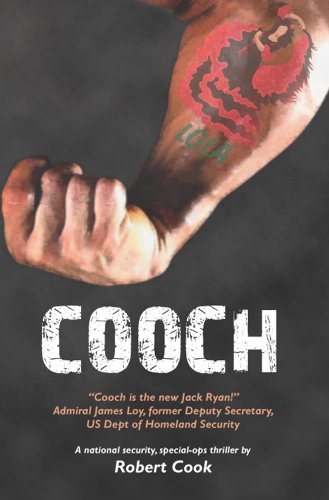On Friday we announced that M.D. Grayson’s Isabel’s Run (Danny Logan Mystery #3) is our Thriller of the Week and the sponsor of thousands of great bargains in the thriller, mystery, and suspense categories: over 200 free titles, over 600 quality 99-centers, and thousands more that you can read for free through the Kindle Lending Library if you have Amazon Prime!
Now we’re back to offer our weekly free Thriller excerpt:
4.4 stars – 30 Reviews
Text-to-Speech and Lending: Enabled
Here’s the set-up:
When danger comes lurking in the night, most people run home and hide—safe behind a locked door. For others, though, running home isn’t the answer. For these unlucky ones, when the front door closes and locks at night—the horror’s not locked outside. It’s locked inside.
Isabel Delgado knows all about horror. For nearly five years, her step-father subjects her to the kind of abuse and depravation that no child should ever have to endure. But Isabel survives. Her spirit is strong and she never gives up hope. On the morning of her 16th birthday, Isabel takes a stand. She wakes early, gathers her things in a school backpack, and with a last look behind, she runs. But Isabel’s not prepared for what she finds.
In the third Danny Logan mystery novel, Seattle author M.D. Grayson brings Danny Logan and the entire team at Logan PI–”Toni” Blair, Kenny Hale, and “Doc” Kiahtel—back for their most exciting and most important adventure yet. Their mission—find Isabel and rescue her from the street gangs and the seething cauldron of teen-age prostitution and human trafficking.
And here, for your reading pleasure, is our free excerpt:
Prologue
Tuesday, May 8, 2012
4:45 p.m.
ISABEL DELGADO WAS in trouble. She sneaked a glance out of the corner of her eye as the uniformed security guard approached. She was seated on an iron bench outside the Terraces food court, pretending to be absorbed in a directory brochure of the Alderwood Mall in Lynnwood, Washington. The guard drew closer. Not again, Isabel thought. She fought to remain calm. She’d already been run off earlier in the day by a different guard when she’d been unable to come up with a quick answer as to why she was hanging around in the same area all morning long. That guard threatened to call the police and have her arrested for loitering if he saw her again. Isabel had left in a hurry. She’d completely circled the mall, figuring that the guard wouldn’t wait that long to catch her again. But in the end she had nowhere to go, so now, three hours later, she was back, and another guard was approaching.
Isabel had no desire to push her luck, but she was out of ideas, and she was out of prospects. She’d tried to lay low since the earlier episode while she waited for something to happen, and she’d been pretty successful—no one had even talked to her except for a cute girl with red hair a couple of hours ago who’d said that she, too, was running. But then the girl suddenly left ten minutes later, and Isabel was alone again. Since then: nobody. Which was fine with her. She knew she needed to do something—but she didn’t want to make a mistake. Above all, she didn’t want to be sent back home—couldn’t be sent back home. She’d decided that if she were arrested, she’d lie about who she was so that they couldn’t send her back. Meanwhile, she waited—waited for something to happen.
She used her peripheral vision and concentrated on the new guard. He was younger. If he stopped, maybe he’d be nicer. From twenty-five feet away, she could hear his footsteps as he approached, keys jangling quietly at his side. He whistled softly to himself, the same quiet, absent-minded way her father used to whistle when he came up the walkway to the house at the end of the day. Suddenly, the guard’s radio crackled and came to life, causing him to stop before he reached her. Isabel was startled, but she caught herself—she didn’t look up.
The guard listened and then keyed his microphone. “Unit Two, roger,” he said. “I’ll be there in five.” At least his voice sounded kind.
He resumed his approach. Isabel suppressed a shudder as the man paused when he reached her. She felt him looking at her. Steady, now. She looked up. The guard was tall and nice looking. Isabel thought he had kind eyes.
The guard looked at her for a moment. Finally, he smiled. “Hey there. What’s going on?”
Isabel fought back the urge to panic. She was a quick learner and, after the last encounter, she’d prepared a story. “I’m waiting for my mom.” She trembled inside but she worked hard to keep her voice even as she used the words she’d rehearsed in her mind. “She’s picking me up.”
“That right?” The guard considered this. “If she’s picking you up, how come you’re not waiting down at the benches by the curb?” He paused and looked at her. “Say,” he added. “Aren’t you the girl who we ran off earlier this morning?”
Isabel tensed up and started to panic. She hadn’t expected that particular follow-up question, and she was unprepared. She felt a quick surge of adrenaline. All she could manage for an answer was a quick shake of her head.
The guard studied her for a second—an eternity for Isabel. He pursed his lips, saying nothing, as if weighing whether or not to buy her story. Then, apparently coming to a decision, he reached for his radio. Just as he was about to key his microphone, though, he was interrupted.
“There you are!” Isabel jumped. She turned and saw an attractive young woman in her early twenties walking up the sidewalk, talking to her. Isabel had no idea who she was.
“I got mixed up,” the woman said, smiling brightly as she reached the two. “I thought we were supposed to meet at the front of the mall.” She turned to the guard, who’d frozen for a moment. “It’s okay, officer. She’s with me.” She turned back to Isabel, “C’mon, sweetie. Let’s go inside and grab a drink before we take off.”
Isabel looked at the woman for a moment. She was dressed in a loose, shimmering green knit sweater over a white blouse. She wore tight black slacks and black shoes with heels so tall that Isabel wondered how she could stand up. Her dark brown hair cascaded over her shoulders in loose curls. Even her perfume smelled wonderful. She was one of the most beautiful women Isabel had ever seen. The woman made a small, urgent gesture with her head as if to say “C’mon.”
Isabel felt the guard staring at her, so she made up her mind quickly. “Sure,” she said, standing. “Let’s go.”
The woman smiled and took Isabel’s arm. Together, they left the guard standing on the sidewalk, watching them. They turned and walked through the double doors into the food court. Once inside, the woman said, “C’mon. Let’s sit over here for a minute and talk.” She led Isabel to a nearby table.
The food court at the mall is a large open area of dining tables surrounded by restaurants. There were few shoppers there—the lunchtime crowd had left, and the evening shoppers had yet to arrive. The smells of the food from the different shops instantly reminded Isabel that she was hungry.
“Whew, that was a close one, huh?” the woman said as she scanned the area around their table. She turned back to face Isabel. “I’m Crystal. What’s your name?”
“Isabel.” To say that Isabel was confused would be a big understatement.
Crystal looked around again and then back at Isabel. “I couldn’t help but overhear you talking to the guard, Isabel. It sounded like you might need rescuing. Are you really waiting for your mom?”
Isabel shuttered. “Yes,” she lied. She didn’t know this woman. “She’s coming to pick me up.”
Crystal smiled. “Good.” She studied Isabel intently for several seconds. “Have you been waiting long?”
Isabel couldn’t very well tell Crystal the real story—that she’d spent last night under the cedar tree by the trash bins, remaining out of sight of the roving security guards. Yet, despite her need to be guarded, she thought there was something about this woman that offered an invitation—a glimmer of hope. Something in her eyes and her tone of voice made Isabel think that Crystal might be someone who could help her. She certainly didn’t want to relive the frightening experience of spending the night under the cedar tree again.
Isabel nodded. “A little while.”
Crystal nodded slowly. “Can I buy you a Coke or something? While you wait?”
Isabel figured in the worst case, at least she’d be safe from the security guards for a while. “Okay,” she said. Crystal bought them a couple of drinks from one of the vendors and returned to their table.
The two chatted about nothing in particular—food choices, the way this or that person was dressed, movies. After a few minutes had passed, though, Crystal’s tone suddenly changed, and she became serious. “Can I ask you a real question, Isabel?” she said.
“Yeah.”
Crystal continued to study her. “You’re not really waiting for your mom, are you.”
Isabel tensed up. Crystal had phrased it in the form of a statement, not a question. “Yes, I am,” she protested. “Why do you say that?”
Crystal shrugged. Her eyes bored into Isabel. “Because we’ve been sitting here for oh—twenty minutes or so, and you haven’t looked back at the door even once the whole time. You forgot your story.”
Oh, hell. Isabel was mortified to realize that Crystal was right. She’d been so relieved to have someone to talk to that she’d completely forgotten she’d said she was waiting to be picked up. She tensed up and then started to push away from the table.
“It’s alright,” Crystal said, reaching across and putting her hand on Isabel’s arm. “No need to leave. Don’t worry about it. I’m not the police or security or anything like that.”
Isabel stayed seated but kept her chair pushed back.
Crystal looked at Isabel intently for several moments. “You’re running, aren’t you, sweetheart?”
Isabel fought hard, but in the end, the weight of the last few days got to her, and she couldn’t keep tears from forming in her eyes. She hesitated, and then she nodded.
Crystal produced a tissue and handed it to Isabel. Isabel wiped her eyes and said, “Thanks.”
“It’s nothing to be ashamed of, you know—running,” Crystal said. “Sometimes, you’ve got to do what you’ve got to do, know what I mean?”
Isabel nodded.
“Did someone hurt you?”
Isabel studied the table without answering.
Crystal looked at Isabel. It was silent for a minute, and then she said, “I was just like you, you know.”
“What do you mean?”
“I mean I ran. I had to leave—probably about your age. What are you sixteen? Seventeen?”
“Sixteen,” Isabel said. “Yesterday was my birthday.”
Crystal smiled brightly. “Happy birthday!” Then, just as quick, her smile vanished. “Did you leave on your birthday?”
Isabel nodded, tears starting again.
“That’s dope. That takes guts,” Crystal said. “You should be proud.”
Isabel stared at her, then she looked down. “I had to leave,” she said quietly.
Crystal leaned forward. “Isabel,” she said, “look at me.”
Isabel looked up.
“It’s like I said—I know what you mean. I had two stepbrothers who took turns raping me for six years starting when I was ten years old,” Crystal said. “When you say ‘I had to leave,’ I know exactly what you mean. I had to leave, too.”
Isabel stared at her. “Really?”
“Really. I couldn’t stay another day.” Crystal rolled up the sleeve on her left arm and revealed a series of scars. “See these? I used to cut myself to make the pain go away.” Isabel cringed at the thought. Crystal noticed. “You don’t cut yourself, do you?”
Isabel shook her head. “No.”
“Good girl. A lot of girls do, you know. But it doesn’t work. The little pain’s supposed to make the big pain go away. But it only works for a little while. Then you find out that the big pain’s still there. And to top it off, you’re left with these fucking scars.” She rolled her sleeve back down. She looked at Isabel. “I understand where you’re coming from, Isabel. I was right where you were five years ago.”
It was quiet for a few moments. Then Isabel said, “It’s my stepfather.”
Crystal nodded.
“For more than four years now.”
“Bastard. I’m so sorry, sweetie.”
Isabel nodded.
“I hate how these fuckers think they can do this to us and get away with it.”
Isabel nodded. “You really went through the same thing?” She could hardly believe that this beautiful woman had once experienced a horror similar to her own.
Crystal nodded. “Really. I showed you the scars, didn’t I?” She paused. “At least the scars that show. Most of ’em don’t, you know.”
Isabel looked at her for a second and then said, “What about now? What do you do now?”
Crystal smiled and flipped her long hair back over her shoulder. “I got lucky,” she said. “I met a really great guy. Now, I work with him in his company; we do entertainment scheduling.”
“You are lucky. You’re really beautiful.”
Crystal smiled. “Thank you. But you should know—you’re as pretty as I am, sweetie. Maybe even prettier.”
“Me?” Isabel said. She found this hard to believe.
Crystal laughed as she pretended to look around; then she returned her focus to Isabel. “Who else is here, girl? Yeah, you. A little makeup, some nice clothes,” she waved her hand at Isabel, “you’d have guys falling all over you. And I mean good guys. Guys who have lots of money and who’ll treat you right.” Crystal seemed absolutely bubbly.
Isabel rolled her eyes. Given her situation at home, she didn’t think about boys very often. This was more than she could even imagine.
“Isabel,” Crystal said, leaning forward again and speaking softly. “Listen to me. You seem like a sweet girl. And I know where you’re coming from because I was in the exact same boat.”
Isabel nodded.
Crystal continued. “Donnie—he’s my boyfriend—Donnie and I have a spare bedroom. If you want, I can ask him if it’d be okay if you stay with us for a little while—until you’re on your feet, I mean. You’d have a safe place to stay, plenty to eat. I’ll even take you shopping for some nice clothes.”
Isabel hesitated. “Why would you do that?” she asked. It had been a long time since anyone other than her friend Kelli had been nice to her. She couldn’t help being suspicious.
Crystal smiled. “Because I guess I see a little bit of me in you, that’s why. And I sure wish someone would have helped me out when I was in your situation.”
This resonated with Isabel. Things were moving fast, but at least they seemed to be moving in the right direction. Still, she hadn’t planned things out this far, and she was struggling to keep up.
“By the way,” Crystal said, “if you left yesterday, where’d you stay last night?”
Isabel looked down. “Under a tree,” she said.
“Oh, sweetie,” Crystal said, smiling, “you gotta stay with us. You don’t want to do that again, do you?”
That reminder, plus the realization that she had no other real options, pushed Isabel over the edge. “I don’t suppose it would hurt to stay with you guys for a while,” she said. “I don’t have any money to pay you, though.”
Crystal smiled. “I didn’t ask you for any money, did I?”
Isabel shook her head.
Crystal reached for her purse. “Let me call Donnie and ask him, alright?”
Isabel nodded. “Okay. Thanks.”
* * * *
Twenty minutes later, Isabel and Crystal stood at the curb near the valet parking stand. Isabel wore her backpack and carried her purse. Soon, a white BMW 750i pulled up. All of the windows were darkened, so it was impossible to see inside. “Here he is,” Crystal said.
Isabel didn’t know much about cars, but she recognized the BMW logo and was impressed. The car was very shiny—even the wheels were sparkling chrome. The driver parked the car alongside the curb and got out. He was a tall, very good-looking, young black man with his hair cut short. He wore black slacks and a tight-fitting, short-sleeved black Under Armour shirt, covered with a loose-fitting burgundy linen jacket. A large, expensive-looking gold watch was just visible on his left wrist, peeking out from under the sleeve of his jacket.
As the driver walked around the front of the car to the curb, the passenger door opened, and another young man stepped out. He was shorter—average height and his skin was paler than the driver’s.. His hair was straightened, gelled, and brushed back. He, too, was nicely dressed—a sharp young man. Both men made an impression on Isabel. They were as good-looking in their own right as Crystal was in hers. To Isabel, they all looked like wealthy fashion models.
“Hey, baby,” the driver said as he walked up to Crystal and hugged her. “You all done?”
“Think so,” Crystal said.
“Good,” the man said. “We are, too.” After a few moments, he glanced over at Isabel. He let Crystal go and said, “Is this your friend?”
“Uh-huh,” Crystal said. “Donnie Martin—this is Isabel—” she turned and looked at Isabel, “—Isabel, I don’t know your last name.”
“Delgado,” Isabel said.
“Isabel Delgado,” Crystal said.
Donnie walked over to her. He towered above her by more than a foot. “Isabel,” he said, reaching for her small hand. “What a beautiful name.” His voice was smooth and deep.
Isabel blushed. “Thanks,” she said. “It’s good to meet you.”
“The pleasure is all mine,” Donnie said. His smile revealed a gleaming set of perfectly capped white teeth. He nodded toward the other man. “This ugly dude over here is my homeboy DeMichael. His friends—we—all call him Mikey.”
DeMichael stepped over and shook Isabel’s hand. Isabel thought his hands were very soft—softer even than hers. “I’m very pleased to meet you, Isabel,” he said. “Does everyone call you Isabel, or do you have a nickname? Something like Belle or Bella—like that girl in Twilight?”
Isabel blushed slightly. “Some of my friends call me Izzy,” she said.
“Izzy,” he said. “That’s even better. I like that. If you’re straight with it, I’m gonna call you Izzy.”
Isabel smiled. “Okay,” she said, nodding.
DeMichael gazed admiringly at Isabel’s hair. “Girl, you have beautiful hair,” he said. “Long and thick and pure black.” He paused and then added, “Like mine!”
Crystal laughed. “Yeah, you wish. Except Izzy doesn’t have to spend a hundred dollars and two hours getting hers straightened every two weeks.”
DeMichael reached for Isabel’s hair then stopped. “Do you mind?” he asked.
“No,” Isabel said.
DeMichael ran his hand slowly through Isabel’s hair. “That’s dope,” he said, seemingly in awe. “And you don’t have to do anything to get this?”
“No,” Isabel said. “That’s just how it is.”
“Damn,” he said.
“Imagine if we hooked her up with Janeka,” Crystal said. “She can throw some conditioner on that, and Isabel’s hair will shine like a black diamond.”
“Say, look,” Donnie interrupted from the sidewalk at the front of the car. “Y’all can share hair-styling secrets later. Right now, I need to talk to Isabel for a second, and then we got to scoot.” He turned to Isabel. “Crystal tells me you having some problems on the home front.”
Isabel looked him in the eye. “I don’t have a home,” she said. “Not anymore.”
“That’s what I’m talkin’ about,” Donnie said. “Bottom line—you’re temporarily out on the streets. Right?”
“I guess.”
Donnie smiled. “Don’t have to be that way, baby—this is your lucky day. Crystal told you we got a spare bedroom.”
Isabel nodded.
“Good. You’re welcome to come stay with us for a while. Till you get yourself established. That sound okay?”
“It does,” Isabel said. “Thank you.”
Donnie smiled again. “Good. We gonna do some great things.” He looked at her backpack. “That all your stuff?”
Isabel nodded. “That’s it.”
“Y’all travelin’ light.”
“I know.”
He shrugged. “That’ll change. Crystal’ll probably hook you up with some of her stuff for now. Use it as an excuse to go shoppin’.”
“Hell with that,” Crystal said. “I don’t need no excuse. Me and my homey Izzy—we’re going shoppin’ anyway. Tomorrow. Right, Iz?”
Isabel hesitated, then started to speak, but Crystal interrupted her. “I know,” she said. “You don’t have any money for shopping.” She smiled. “Good thing for you, I do. You can owe me. We’re going to get you all done up. Your hair, too. You’ll be so dope, people’ll have to wear sunglasses around you just to knock back the shine!”
Isabel smiled as DeMichael opened the back door.
“I’m riding shotgun,” Crystal suddenly called out.
DeMichael looked at Isabel. “Guess that means me and you in the back. After you, my dear,” he said gallantly. Isabel crawled into the back seat. She could hardly believe her luck. Less than twenty-four hours ago, she’d been shivering the night away hiding under a cedar tree to avoid the guards and to keep from getting rained on. An hour ago, she’d been sitting on a bench with no idea how to proceed. Now, she was sitting in a BMW, surrounded by nice people who wanted to help her out. She smiled as the car pulled away from the curb.
PART 1
Chapter 1
“CEASE FIRE! CEASE fire!” The Range Safety Officer’s voice thundered down the line just as the last shooter fired his final round of the stage. The electronic noise-canceling features in my headset were designed to muffle the sharp reports of gunshots while still allowing voice commands to come through loud and clear—not that Gunny Doug Owens needed any help getting his point across. Twenty-one years in the Marine Corps prior to joining the Seattle Police Department as head firearms instructor gave him a “command voice” that left no confusion, no ambiguity as to the meaning of his message. Like many of the tough old sergeants I’d known in the army, Gunny Owens didn’t so much speak when he was on the range; he barked. It reminded me of basic training at Fort Benning.
I lowered my Les Baer Thunder Ranch Model 1911 .45-caliber semiauto to a forty-five degree angle, finger indexed along the barrel. Keeping it pointed downrange, I turned my head quickly in each direction, automatically scanning the area around me for new threats, just as Gunny barked out, “Weapons to low ready!”
He followed this up a second later with, “Unload and make safe!” The slide on my weapon had automatically locked open when I’d fired the last round. I pressed the magazine release button, and the empty magazine dropped out and fell to the ground.
“After inspection by a Range Safety Officer, holster your safe weapon.”
The RSO on my side of the line worked his way from shooter to shooter, checking their weapons as he went and tapping them on the shoulders when he was satisfied their weapons were completely empty, signifying it was okay to holster their weapon. I waited my turn as the gentle breeze cleared the smoke from the range.
When Gunny saw that the assistant RSOs on either side of the line had completed their inspections, he barked out “Line clear on the left?” The assistant RSO on my side of the line held up his hand in acknowledgment. “Line clear on the right?” The officer on the opposite end of the line did the same.
“Good,” Gunny said. “Ladies and gentlemen, the line is clear! You may remove your hearing protection. Retrieve your magazines, and let’s check targets.”
It was a beautiful morning on June 5, 2012. The temperature was in the high sixties, and the sky was partly cloudy. My partner, Antoinette “Toni” Blair, and I had just fired the last sequence in the Washington State Basic Law Enforcement Firearm Training course at the Seattle Police Athletic Association range in Tukwila, just south of Seattle. This is the same test issued to retired law enforcement officers annually and, other than Toni and me, the thirteen guys on the line were all retired police officers. Thanks to the Law Enforcement Officers Safety Act that Congress passed in 2004, successfully passing this test gave these retired officers the right to carry concealed weapons almost anywhere in the nation. Can you say instant extended police force? At no additional cost? Clearly, this was one of Congress’s smarter moves, if you ask me. Of course, Toni and I were not law enforcement officers, so passing the test wouldn’t give us the same privileges. But the practice kept us sharp, and it helped keep our insurance premiums low. And if, God forbid, we ever had to shoot anyone, regular documented training would probably help us legally. We were fortunate that my friends at Seattle PD allowed us to train with them and use the range.
I reached down and picked up my empty magazine, dusted it off, and put it in my pocket. Toni was two shooters to my left; I saw her do the same thing. At twenty-seven years old, she’d just had a birthday two weeks ago. She was dressed in camouflage-print fatigue-style pants that had no business looking as good as they did on her, green tactical boots, and a beige long-sleeved T-shirt that had an American flag and Made in the U.S.A. printed on it in big, bold red letters across the chest—just in case you were having trouble noticing the way she filled out the shirt (which, I suppose, would have been pretty good proof that you were legally blind). The other guys didn’t know it, but I knew that the long sleeves covered a full-sleeve tattoo on her left arm and a delicate little Celtic-weave tat on her right. Her thick, dark hair was covered with a backward-facing baseball cap, itself covered with her ear-protection headset. She wore yellow-tinted shooter’s glasses. She looked like a Victoria’s Secret model at a gun show—she was distracting as hell, and I was glad there was space between us. When we straightened up, she caught me looking and she smiled.
Oops. This wasn’t one of her “I love you” smiles or even one of her playful ones, for that matter. We’ve been friends for a long time—I’ve known her for more than five years. I’ve seen her use about twenty different smiles—she’s got one for every occasion. I know most of them pretty well, but as for this one, her meaning was quite clear. She was giving me the nasty, evil little grin that usually comes when we’re locked in competition. We both hate to lose, and shooting qualifications bring out our competitive natures. She looked pretty smug—must have fired another clean stage. I turned away and started walking downrange to inspect my target.
“Holy crap, Nichols!” Gunny yelled as he inspected the first shooter’s target. “You do know you’re supposed to be shooting target number one, right? You fired five rounds, but I only see three damn holes!” He turned and looked at the next target on the line. “You got any extra holes on your target?” he said to that target’s shooter. “Nope?” He turned back to the first unlucky guy. “Nichols, you had two rounds off the whole damn target! That’s pathetic. Ten points each—it’s going to cost you a twenty-point penalty.” He shook his head with disgust. “What’s worse, if this were real life, that means you’d be the proud owner of two .40-caliber projectiles flying through the air at 1,100 feet per second looking for something solid to hit besides their intended target.” He looked at the sheepish shooter. “You understand that’s bad, right?”
The man nodded. “Sorry, Gunny.”
“Yeah, you are,” Gunny nodded in agreement. “Looks like we’ll be seeing you back here this afternoon.”
Gunny moved down the line, examining each shooter’s target. His comments were usually short and to the point. “You pushed this one,” or “You flinched before you pulled the trigger here, see? Caused you to jerk low left.” The shooters—all experienced police officers with years and years of training—listened carefully. Gunny Owens was held in universal high esteem. He’d forgotten more about shooting than most of us would ever know.
He reached Toni’s target and stared at it for a second. “Holy hell, she’s doing it again!” he called out. The other shooters turned to look at Toni’s target. “This young lady,” he said, “—a civilian, I might add—qualifies on this very course every ninety days without fail. And I have never—I repeat never—seen her put a round outside the ten ring. Look at this shooting here. Y’all should do so well. Excellent! Well done, young lady.” Toni smiled demurely. “A solid 250,” Gunny said. “Perfect score.”
Gunny continued down the line until he reached my target. He examined it carefully, counting the number of holes. When he was finished, he turned to me. “Staff Sergeant Logan, did you yank one off the target?” Gunny liked to call me by my former military rank.
“Hell no, Gunny,” I said. “Look here.” I pointed to one of the bullet holes in the center of the target that was a bit more oblong than the others.
Gunny leaned forward and inspected the hole. “Oh, yeah,” he said, smiling. “I see. Same damn hole.” He stood up. “Folks, listen up! Another perfect score from the other civilian in the group.” He paused for a moment, and then he continued. “Although technically, I ain’t sure you can call him a civilian—he’s former U.S. Army 101st Airborne. It don’t happen often, but from time to time, the army turns out a damn fine shooter. Right, son?” That was about as high a compliment as an army grunt’s likely to get out of a marine (MARINE: “Muscle are Required—Intelligence Not Essential”).
“Hooah, Gunny!” I yelled out. You better believe it.
“Damn right,” he said, nodding his head sharply. He turned and continued his inspection.
After he finished with the last shooter, he returned to the center of the line. “Gentlemen, and Ms. Blair,” he said, “Y’all gather round.” When we’d formed in a group around him, he said, “One of y’all’s coming back this afternoon.” He turned to the offender. “That’s you, Nichols. I want you to practice with Officer Mendez here,” he pointed at one of his assistant RSOs, “right after lunch: 1300 hours. If you’re ready, you’ll get another shot at qualifying at 1400. We’ll see if you can keep all your rounds on your own target this time.” He looked at the rest of us. “As for the rest of you—you’ve all officially qualified. Congratulations.” The men nodded their heads quietly. They’d done this before and most were good—if not very good—shooters.
“Before you leave, though, we do have a dilemma,” Gunny continued. “We have a tie for top honors—two perfect scores.” Here we go, I thought. Same as last time. “And as some of you may know, I don’t like to end things with a tie. No closure that way. So what say we have ourselves a quick little tiebreaker shoot-out?”
“Yeah!” the men agreed enthusiastically.
“Good. Randy—do me a favor and throw a couple of clean targets on lanes three and four, would you? The rest of you, follow me.”
Gunny walked us back past the fifteen-yard marker where we’d fired the last sequence. He kept walking, past the twenty-five yard marker until he reached a marker that said thirty-five yards. “We’ll do it from here,” he said. “Make it interesting. A little over one hundred feet—a real test. Ms. Blair—you’re on number three. Staff Sergeant Logan—you’re on lane four. Everybody else: behind the line.” I looked downrange at the small targets. One hundred feet is a long pistol shot if you have something solid to brace against. Without a brace, it was really long.
He waited until the targets were set and everybody was behind us. “Okay, you two,” he said. “I want you to load one round—and one round only—into a magazine. This will be a one shot, do-or-die competition. We’ll run you through one at a time. Who wants to go first?”
“I will,” Toni said quickly. I looked at her, and we locked eyes. She no doubt was trying to psych me out. Good luck with that.
“Ladies first, then,” Gunny said. “Oh, I forgot. We’ll use the electronic timer. You’ll start from the low ready position, two hand grip—or one hand if you want. Your choice of stances. When the timer beeps, you’re to raise your weapon and fire. You’ll have two seconds to get your shot off before the timer beeps again. If you go over, the timer will tell us, and you’ll be DQ’d. So don’t go over time.”
Two seconds! Two seconds was very fast from thirty-five yards. I glanced at Toni. If she was concerned, she didn’t show it. She was already concentrating on the target.
“You two ready?” We nodded.
“Okay, everyone. Hearing protection on!” Gunny reverted to command voice.
“Shooter number one, at this time, load and make ready!” Toni slapped a magazine into her Glock 23 and cycled the slide.
“Shooter, assume a low ready position!”
Toni crouched down, her weapon held before her pointed toward the ground at a forty-five degree angle.
“Shooter, watch your target!”
BEEP! The electronic timer sounded. Toni instantly raised her weapon, sighted, and one second later, fired. BOOM!, followed nearly instantly by BEEP! as the timer sounded again. Toni had beaten the clock by a fraction of a second.
Everyone looked downrange and strained to see the bullet hole in the target. “One point eight seven seconds, and she’s in the bottle,” Gunny called out, “chin level, just a hair right of center. Seven points. That’s fine shooting from thirty-five yards, young lady. Especially in under two seconds.” The “bottle” is the broad, bottle-shaped area of the target that includes the upper torso and the neck up to the center of the head. Toni’s shot was very nearly right on the centerline in the “neck” of the bottle, but it fell midway between the four-inch diameter “ten” ring centered around the top of the target’s nose and the six-inch diameter “ten” ring centered around the target’s heart—in other words, just under the chin. It was an outstanding shot, but looking at Toni, I could tell right away she was not happy. She felt me staring, turned to me, and stuck her tongue out.
“The bad guy is definitely down,” Gunny said. “Probably for good, I’d say. But—with a score of seven,” he smiled with a nasty grin, “the door got left open for the staff sergeant just a hair. Ms. Blair, go ahead and unload and make safe.” Toni released her empty magazine and held her pistol up for inspection by one of the assistant RSOs. He patted her on the shoulder, and she holstered her weapon. The RSO turned to Gunny and raised his hand.
“The line is clear,” Gunny said. “Let’s see if shooter number two can take advantage.”
As I stepped up to the line, Toni said, “Check your fly, dude.” I smiled. Psych!
I was in a tough spot. This was going to be a difficult shot. I like to win as much as she does. Lord knows she would’ve liked nothing better than to beat me on the firing range. In four years, it had never happened before. If she won one, she’d be delighted. This could be a good thing. Maybe it was her time. Thinking about it made me consider maybe giving her one—pulling the shot on purpose. But if I did that, I still needed to make it close. She knows I’m a good shot, and if she suspected I’d thrown the round, she’d have my ass. I made my decision.
“Shooter number two, load and make ready!” I slapped the magazine with the single round into my sidearm, released the slide, and lowered the weapon to the low ready position.
“Shooter, watch your target!” I crouched and tightened my grip.
BEEP! All at once, the outside world seemed to recede. Everything switched to slow motion and all my training kicked in. As my arms came up to target, my right thumb pushed the safety lever to the off position. During the same motion, I took one deep breath, then held it. My arms steadied on the target. My eyes instantly found the front sight, and the front sight centered on the target’s head. With all my concentration, I focused on the front sight. Steady. Squeeze. BOOM! The round fired. BEEP! The timer sounded. I didn’t need to look.
* * * *
We said our good-byes to Gunny Owens at 11:00 and jumped in my red Jeep for the drive back to our office. Our company is Logan Private Investigations—or Logan PI, as we like to call it. We have a small office on Westlake Avenue on Lake Union, right in the middle of Seattle, less than a mile from I-5. Unfortunately, the south end of Lake Union where we’re located was currently wrecked by construction. Microsoft cofounder Paul Allen had decided to single-handedly rebuild Seattle, and he was starting with the South Lake Union area. As a result, traffic was stop-and-go. Actually, more stop than go—it was going to take a while. I hit the play button on the MP3 player, and the sound of a very sweet piano started to flow from the speakers.
Toni listened carefully when the singer started. “Is that—is that Brandi Carlile?” she asked.
“Yep.”
“I’ve never heard this before.”
“I know. That’s because it’s brand-new. It’s called Bear Creek. Just released today. This song is called ‘That Wasn’t Me.’”
She listened for a minute, tapping her foot to the beat. Then she said, “Awesome. I love it. She sounds like Adele.”
I considered this. “Yeah a little, maybe. On this song, anyway. Maybe a bit more country.”
We listened to the new music for a minute while we waited for the traffic to move. Toni’s cell phone rang, and I turned the music down.
“Okay,” she said into the phone. “Tell her to wait. We’re down by the park—only about a half mile away. As soon as traffic moves, we’ll be there.”
She hung up and turned to me. “That was Kenny. He says Kelli’s at the office.”
Kelli—Racquel Genevieve Blair—is Toni’s eighteen-year-old little sister. I hadn’t seen Kelli in a couple of months, although we’d been planning to go to her high school graduation the following week.
“He say what she wants?” I asked.
“She wants to talk. To you and me both.”
Curious.
* * * *
Twenty-five minutes later, we walked into our office. No one was in the lobby, so we made our way toward the back, where we heard laughter coming from the office of Kenny Hale—our technology guru. I followed Toni into Kenny’s office. He was at his desk with Kelli sitting across from him.
“Hey, guys,” Kenny said when we entered.
“’Sup?” I said, looking from Kenny to Kelli. “Hey, Kelli.”
Kelli and Toni look the same but different. Bear with me—I haven’t lost my mind here. Toni’s tall—a solid five foot eight. Kelli’s a touch shorter—maybe five seven or so. Both girls have striking figures—something they inherited from their mom, I suppose (although I’m not sure I’m supposed to have noticed that). Both have thick, dark hair, although Kelli’s is long with no bangs and more of a brunette color, while Toni’s is more mid-length with long bangs and almost black. The biggest, most noticeable difference, though, is not their height or their hair, but their eyes. Toni’s eyes are a brilliant blue—the color of the Hope Diamond. Kelli’s are a deep emerald green. Both are beautiful. So, like I said—the girls look the same but definitely different.
“Hi, Danny,” she said. She turned to Toni. “Hey, sis.”
Toni walked over to Kelli. “Hi, sweetie,” she said, leaning forward and hugging her sister. She straightened up and eyed Kenny warily. “I see you’ve met Kenny.” Kelli probably missed the look. I didn’t.
“Yeah,” she said. “We’ve just been talking.”
Kenny’s a young guy—he just turned twenty-six a couple of months ago. He’s maybe five eight and a buck fifty soaking wet. He’s got an unruly mop of dark hair that he pushes over to one side. In fact, he looks just like what he is—the quintessential computer geek. When it comes to anything to do with computers, Kenny’s the real deal. He’s got aptitude and native talent that’s off the charts. He grew up with computers in ground zero of the computer world: Redmond, Washington. I’m not certain, but I’d be willing to bet his first toy was a laptop. Knowing Kenny, he probably took it apart, tricked it out some way, and then put it back together. He’s got to be one of the most brilliant PC dudes in the Pacific Northwest. His consulting services are in high demand—I’m sure he makes at least as much moonlighting for the big tech companies around here as he does from his Logan PI paycheck. Still, lucky for us, he likes the excitement of detective work. I say “lucky for us” because computer skills are a near prerequisite for PI firms these days.
Despite the fact that he’s no physical specimen, Kenny is surprisingly successful with the ladies. I have a theory about this. I think that like a lot of nerdy guys, he was probably teased in high school by the jocks and shunned by their pretty cheerleader girlfriends. Back then, geeks were people to be, if not outright, scorned, at least avoided. Now, seven or eight years down the road, presto-chango! Role reversal! Now the smart-guy propeller-heads like Kenny have all the money and run around in their Porsche Cayenne Turbos. Now it’s their turn to date the pretty girls while the majority of high school jocks (meaning all those who didn’t get Division I scholarships) work low-paying, manual labor jobs (if they can still find them). Kenny was simply playing his new role for all he was worth. It’s just a theory. Anyway, I like him. He’s a good guy with a good heart.
Toni feels the same way, but to her, Kenny’s a target she can’t resist for some good-natured teasing. She teases him about his hair, his height, his weight, even his girlfriends. And he gives as good as he gets. He teases her about her hair, her height, her tattoos, and—until recently—her lack of boyfriends. Normally, there’s a good-natured banter between the two of them. Today, though, Toni’s little sister was here to talk about something, and no doubt, Toni wondered if Kenny had tried to put some kind of move on Kelli while they’d been waiting for us. I doubted this—Kenny goes out with younger women to be sure, but even Kenny has a lower age limit, which seems to be twenty-one or so. But what the hell. Toni’s the big sister, and it’s her job to be protective—thus, the stink eye. It continued, even as I led Kelli out of Kenny’s office to our conference room.
Kenny noticed. “What?” he mouthed silently, holding up his hands.
Toni glared at him for a second, then she turned and followed us. Message sent.
* * * *
“So,” I said, when we entered the conference room. “Long time no see, Kelli. I haven’t seen you since your birthday.”
“I know,” she said. She looked at Toni then back at me. “You guys had just started going out. I’m so happy for both of you.”
Toni smiled. “Thanks, sis. We’re happy, too.”
“And now it’s time for graduation,” I said. “You all ready to go?”
“Sure am,” she said.
“You feel happy or sad?” I asked.
“Happy. Definitely happy.”
I smiled. “That’s good. What’re you going to do?”
“I’m going to U-Dub,” she said. “I start in the fall. I’ve already been admitted.”
“Cool!” I said. “Outstanding! Do you know what you want to study yet?”
“Yep. I’m thinking LSJ—same as you guys.” The University of Washington offers a four-year bachelor’s degree in something they call Law, Societies, and Justice. Basically, it’s a fancy name for a criminal justice degree. Toni and I met in early 2007 when we were seniors in the LSJ program. I was still in the army, finishing my last year as a CID special agent. It’s a good education if you want to make law enforcement your career.
“LSJ—that’s cool,” I said. “Are you thinking about police work?”
“Pre-law,” Kelli said. “I want to be a DA.”
I smiled. “Excellent. Somebody to put the bad guys away. You’ll make a great DA. Runs in your family, I think.”
Toni smiled.
“Yeah, I think so, too,” Kelli said.
“Well, that’s good,” I said. I leaned back in my chair. “So what brings you here today?”
Her mood sobered quickly. Where she’d been happy and smiling a moment before, she suddenly turned somber.
“I have a friend,” she said. “I think she’s in trouble.”
Toni eyed her suspiciously, not certain if Kelli was referring to herself when she said “a friend” and, if she was, trying to determine what she meant by “in trouble.” Pregnant maybe? Big sister switching back into protective mode, I suppose.
“What kind of trouble,” Toni said.
“I think my friend Isabel’s been kidnapped,” Kelli said.
Whoa! That came out of left field! Toni and I both looked at Kelli as we scrambled to catch up mentally. “What do you mean, you think she’s been kidnapped?” Toni said.
“Hold up for a second,” I said, raising my hand. “Don’t answer that just yet.” Both girls looked at me. “Since the conversation’s headed this direction, let me grab a couple of notepads, so we can take notes and do this the right way.”
Toni looked at me for a second, and then she said, “Good idea.”
I took a couple of steno pads from the credenza behind the conference room table. While I was up, I grabbed three bottles of water.
“Kelli, why don’t you start from the very beginning,” I said as I sat back down. “Go slow. Give us plenty of details. Everything you can remember.”
“Okay,” she said.
“Start by giving us Isabel’s personal data. What’s her full name?” I asked.
“Isabel Delgado.”
“Do you know if she has a middle name?”
“I don’t know.”
“Address?”
“She lives at 4268 192nd Street in Lynnwood.”
“Just around the corner from us?” Toni asked. Toni grew up in a home on 189th Street in Lynnwood—the same home where Kelli still lived with their mother.
“Yeah,” Kelli said. “

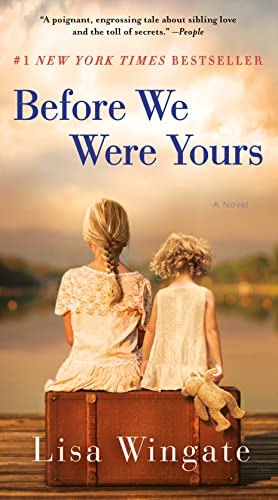


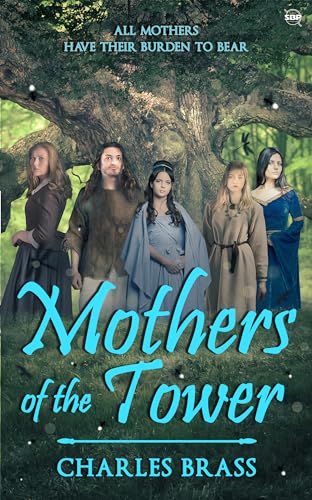
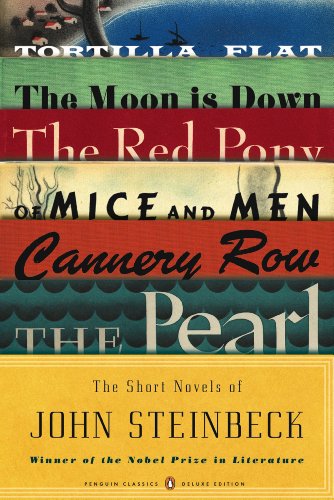


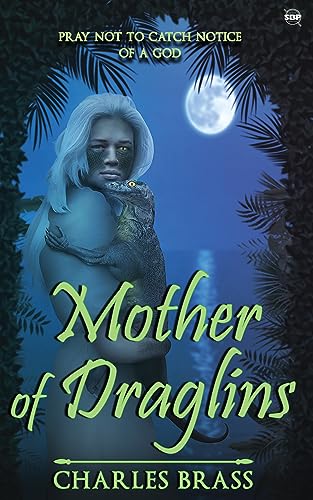

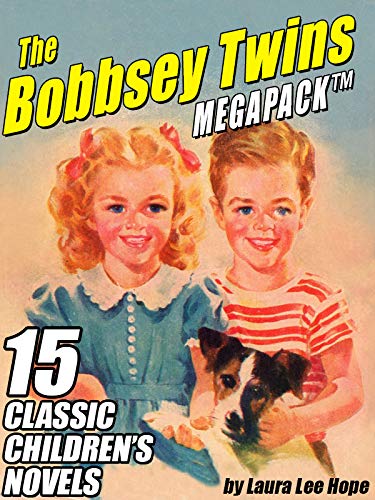

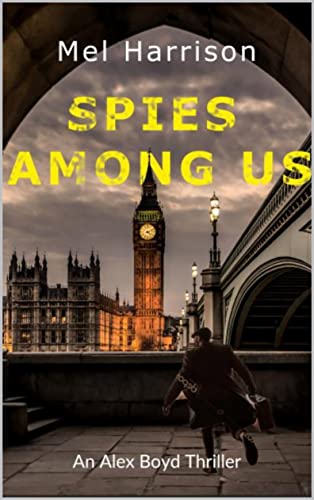









 Jackie Townsend is the author of "Reel Life" and "Imperfect Pairings." She is a native of Southern California, and spends a lot of her time in places not her own. As the youngest of four children, she carries a strong sense of family with her to these places, often foreign, and writes about belonging (or not belonging), loss, and love. She lives in New York with her husband.
Follow her blog at jackietownsend.com.
Jackie Townsend is the author of "Reel Life" and "Imperfect Pairings." She is a native of Southern California, and spends a lot of her time in places not her own. As the youngest of four children, she carries a strong sense of family with her to these places, often foreign, and writes about belonging (or not belonging), loss, and love. She lives in New York with her husband.
Follow her blog at jackietownsend.com.